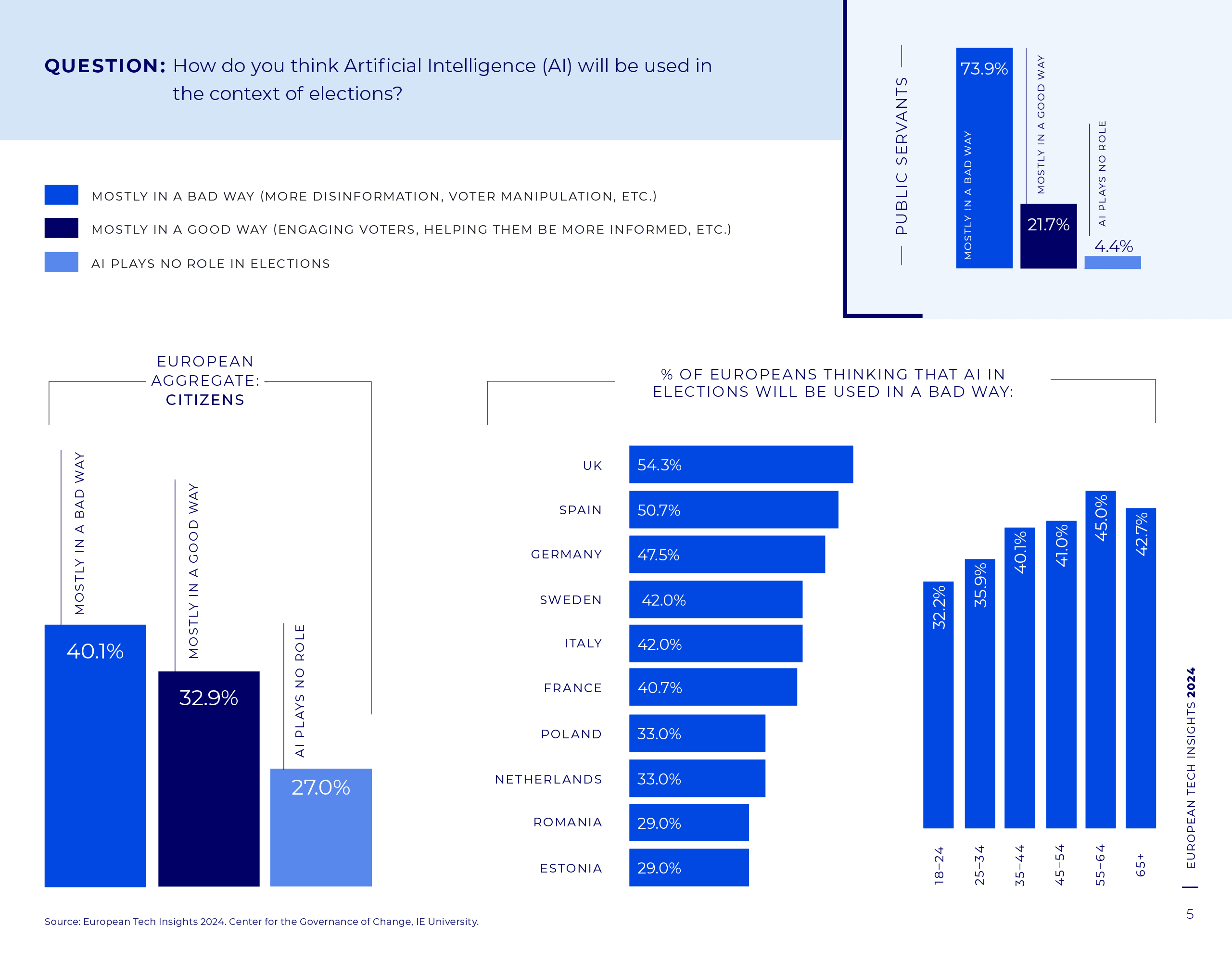- Home
- News And Events
- News
- European Tech Insights 2024 Reveals Fears Of Ai Manipulation In Elections
European Tech Insights 2024 reveals fears of AI manipulation in elections
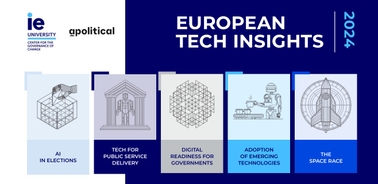
The 2024 edition of the annual survey on European attitudes towards technological change with the aim of understanding how technology is transforming our lives and how it should be governed, this year, including the perspectives of European public servants.
The 2024 edition of European Tech Insights delves deeper into attitudes towards AI and elections, in the context of a super-electoral year, AI and public services, integration of emerging technologies into daily-life and space tech. This year, the Center for the Governance of Change has partnered with Apolitical, the world’s largest community of public servants, to survey both citizens and a small sample of public servants.
As AI continues to be integrated into key areas of government, a significant majority of Europeans (67%) expressed concerns about the potential hacking of elections. The fear of misuse of AI in elections is particularly pronounced in the UK (54%) and Spain (51%). Despite these concerns, the younger generation shows greater openness to AI, with 34% of Europeans under 35 indicating they would trust an AI-powered app to vote for political candidates on their behalf.
European Tech Insights highlights public attitudes towards the use of AI in public services:
- There is strong support for AI in areas like traffic optimization (77%) and helping job seekers (79%).
- However, most people draw the line at using AI for sensitive tasks, such as determining welfare eligibility or making parole decisions.
- 75% of Europeans support using AI in police and military operations, such as facial recognition and biometric data for surveillance.
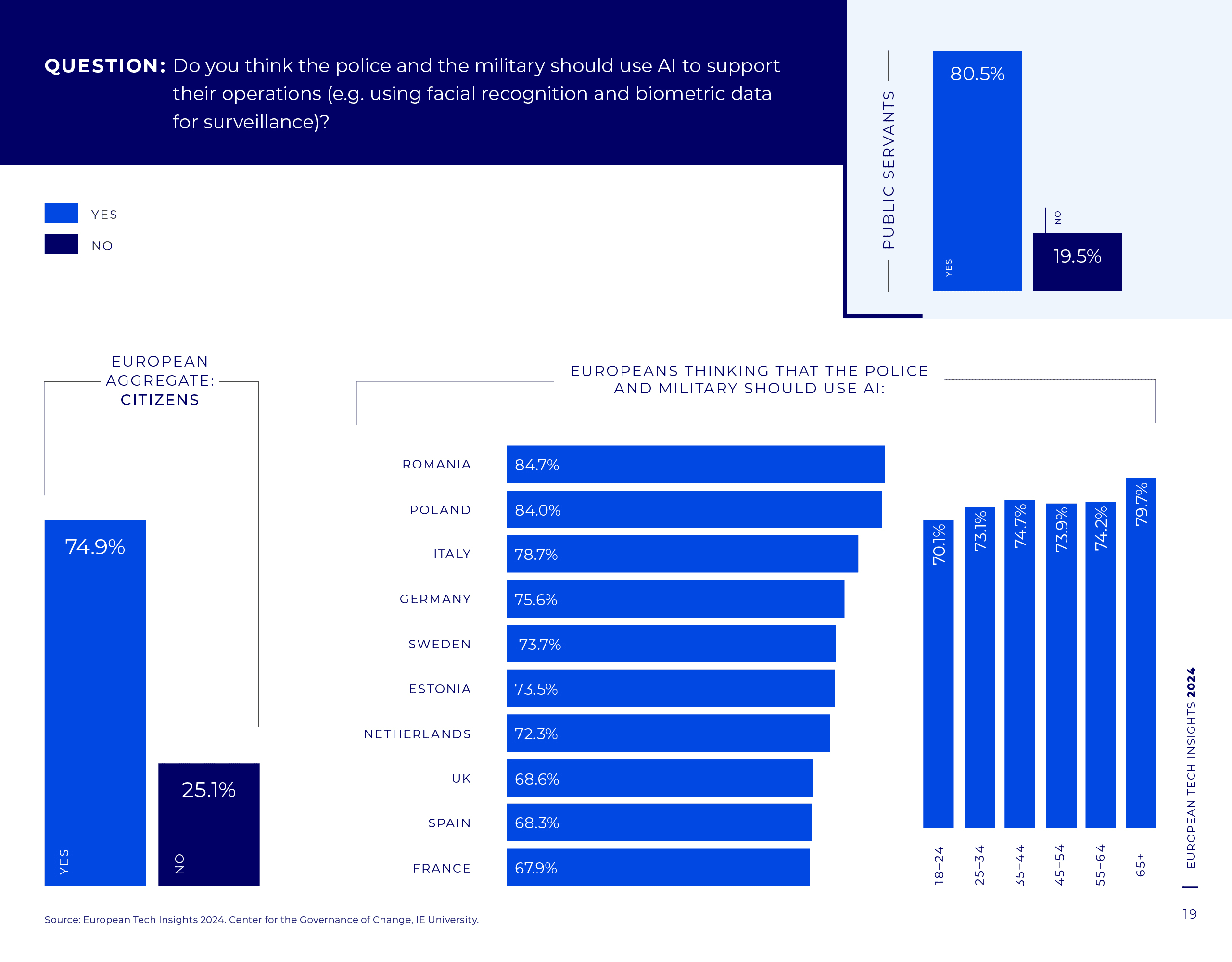
- More than a third (34.9%) of European citizens and 31.7% of public servants would trust the accuracy of AI tools to summarize parliamentary work.
- In most countries, there is a consensus that private companies are better prepared than governments in terms of cybersecurity.
- Citizens approve of the government’s efforts to use technology for improving public service delivery, rating it at an average of 2.8 out of 5, while public servants provide a slightly higher rating of 3.2 out of 5.
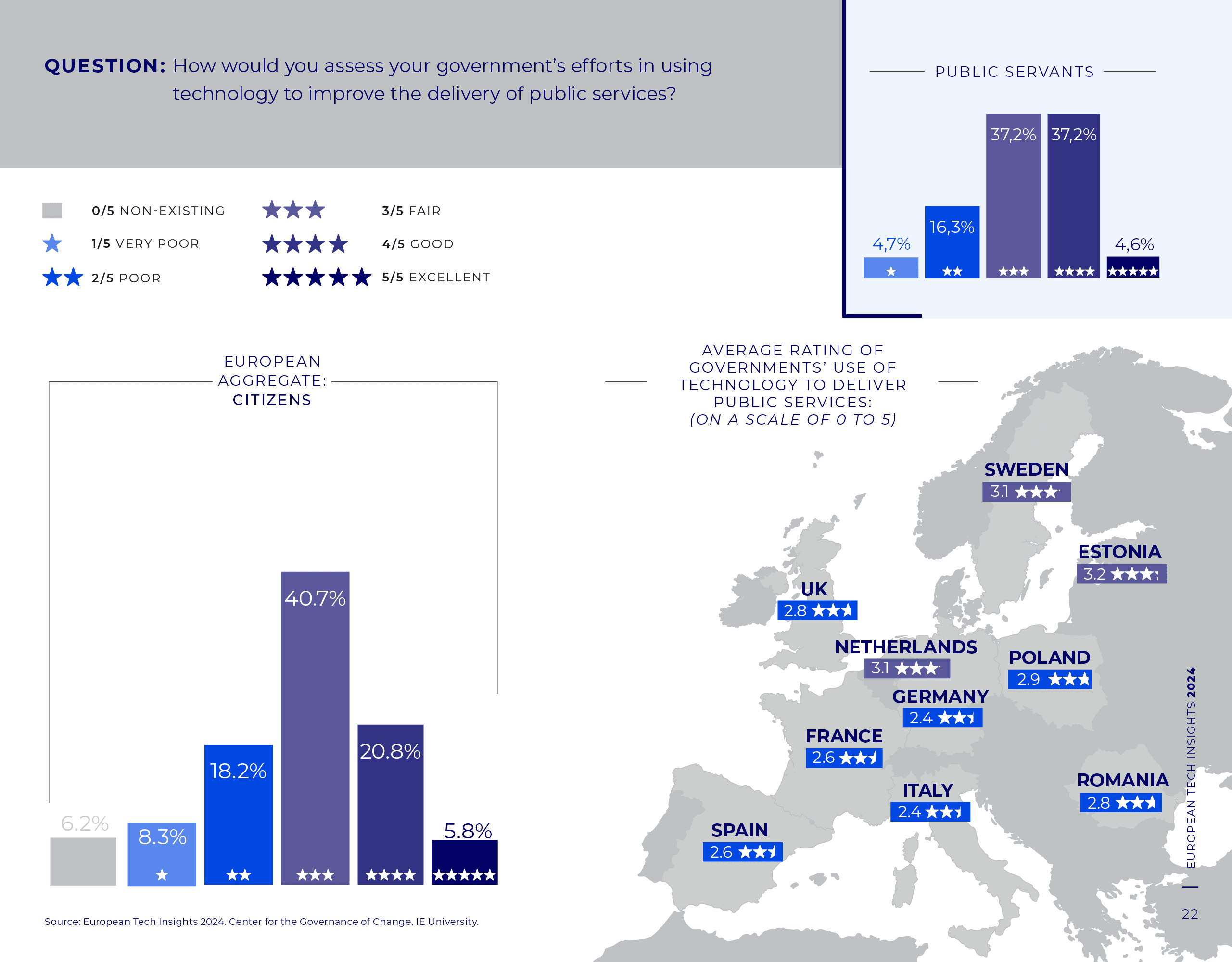
- A majority of Europeans believe that in the next 10 years they will have access to medical devices that treat patients remotely (75.3%), humanoid robots that do household chores (56,8%), 3D-printed organs (55,7%), and augmented reality contact lenses (52.9%).
- More than a third (35.6%) of European citizens would be willing to use neurostimulation devices (such as Neuralink) to improve their mood, stress levels, or mental health conditions.
- Up to a third (33.3%) of Europeans would be willing to use ocular devices to record their memories.
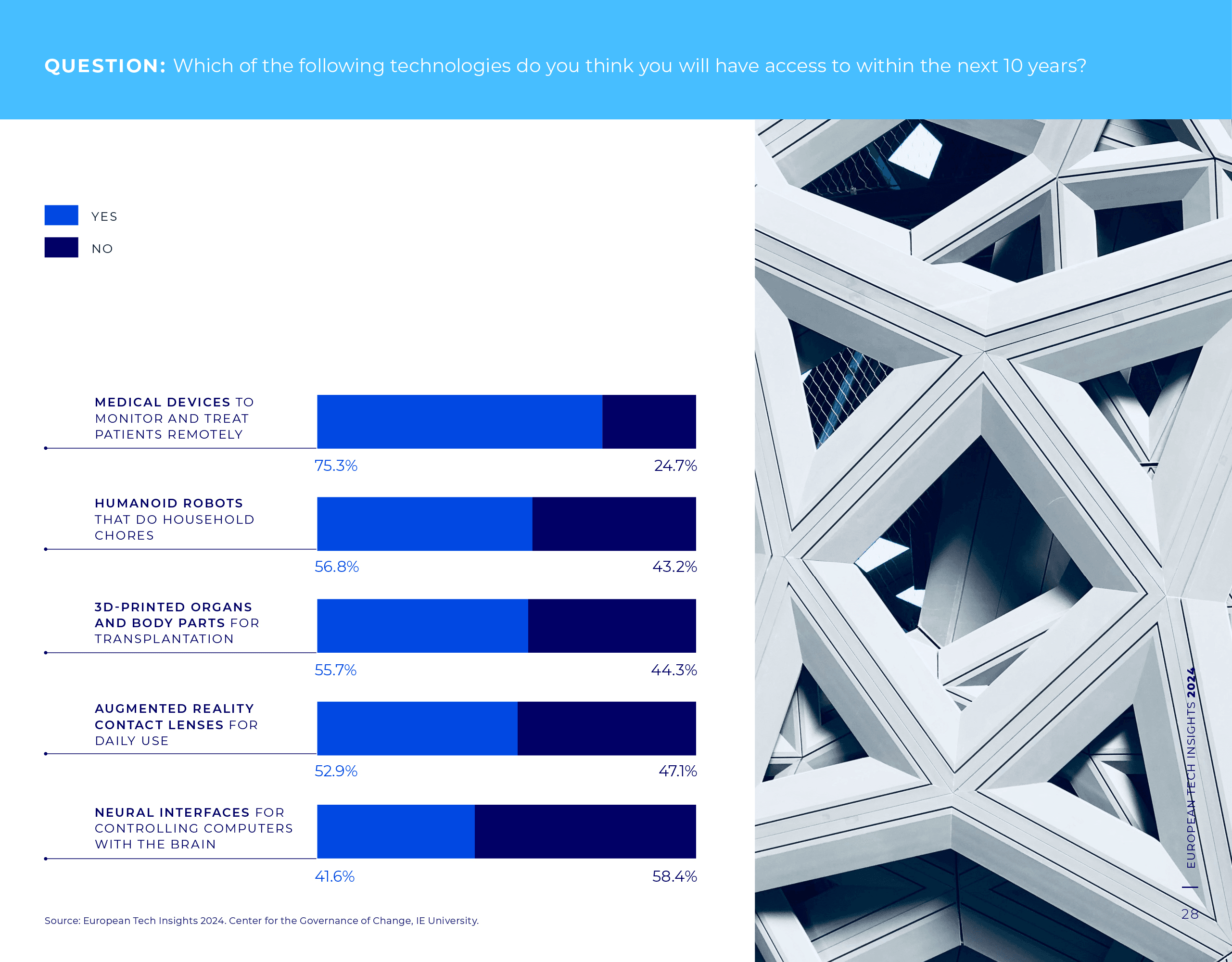
- A slight majority of Europeans (53.2%) believe that Europe is not investing enough in space exploration.
- Most European citizens (53.9%) prioritize scientific research and discovery in space, while an overwhelming majority (88.4%) of public servants share this view.
- 70.2% of Europeans support Public-Private Partnerships in the space race.
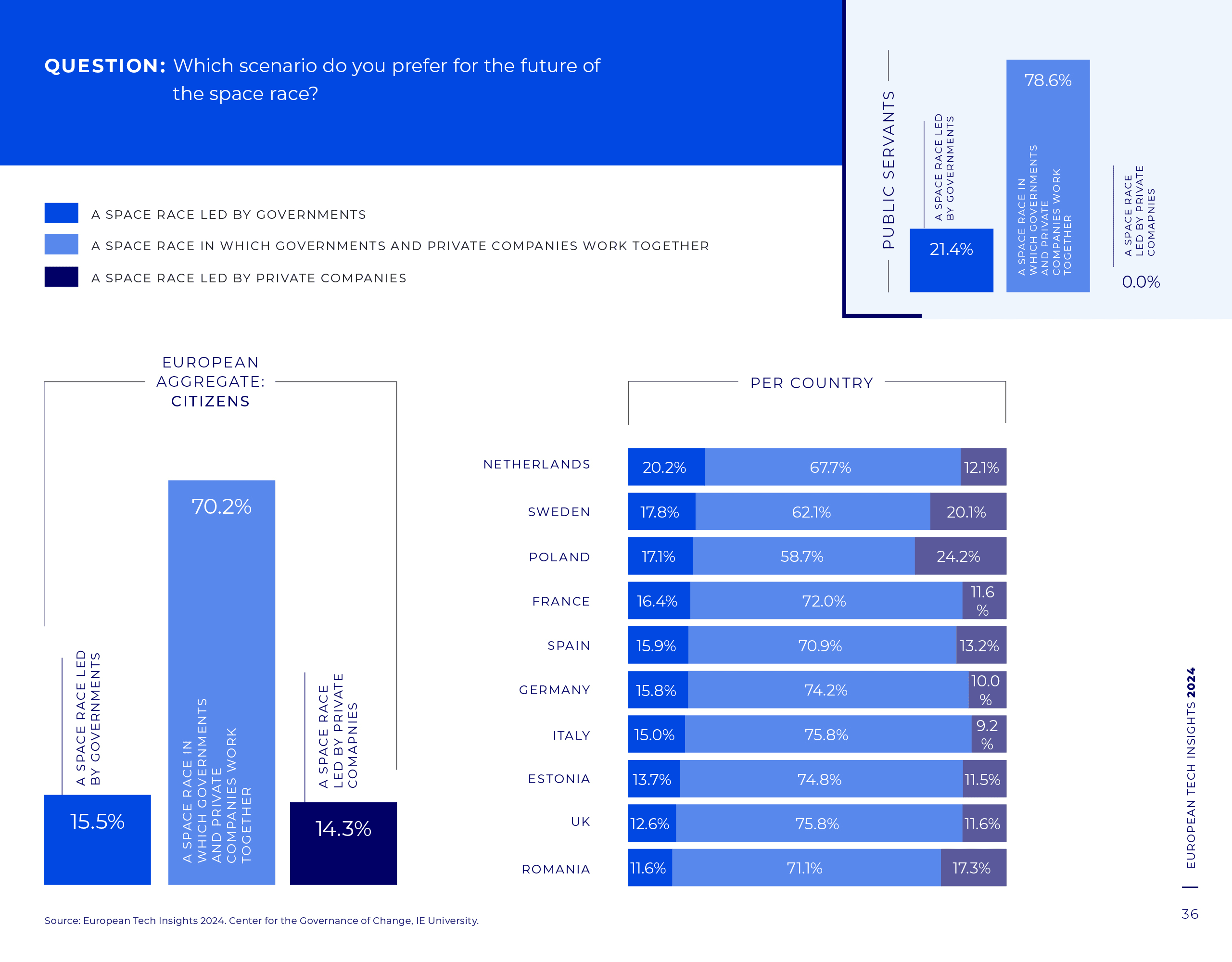
For the public servants survey, Apolitical initiated a panel among its network members, which includes public servants from over 100 countries. This survey gathered 47 responses from public servants in the same 10 countries as the citizen sample.
